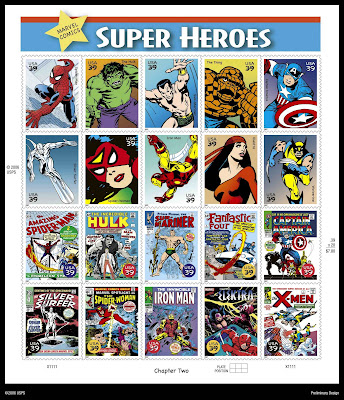
(The Riskies welcome HQn/Harlequin Historicals author Nicola Cornick for the first time to the blog! Be sure and comment for the chance to win a copy either of Unmasked or The Last Rake in London. Yes, it’s a two book giveaway this week…)
Riskies: Welcome to the blog, Nicola! Tell us about Unmasked (I love the Russian heroine…)
Nicola: Thank you so much for inviting me to visit Risky Regencies today! I’m so excited to be here.
Unmasked is a story about friendship and liberty as well as being (I hope!) a very tender and passionate love story. The heroine, Marina Osborne, was born a Russian serf in the house of a British diplomat, the Earl of Rashleigh, in St. Petersburg. He educated her as an experiment and brought her up to be an English lady, but when he died and his son inherited, the new earl forced Mari to make an unholy agreement–she had to become his mistress to buy her family’s freedom from serfdom.
When the story begins, Rashleigh has just been murdered and Mari is the prime suspect. She has come to England and re-invented herself as a respectable widow living in the Yorkshire countryside, but there are so many secrets in her past that it seems impossible she can escape them. The earl’s cousin, Major Nick Falconer, is sent to try to uncover the truth about the murder. Nick is a soldier, as honorable as his cousin was evil. As he starts to discover the truth about Mari he is hugely attracted to her and desperate to help her heal, and she is equally desperate to keep her secrets while at the same time she wants to trust Nick–and is falling in love with him.
It’s a very tender and moving courtship, and I hope readers find it moving, too. I should add, though, that I have leavened the story with some of the humor I always like to put in my books. For example, Nick suspects Mari of being the leader of the Glory Girls highway-women. But then he sees her fall off a horse because she is such a poor rider, and he realizes his assumptions about her might be quite wrong!
Riskies: LOL! Where did you get the initial idea for this story? Was there anything interesting or unusual you came across in the research?
Nicola: The year 2007 was the bicentenary of the abolition of slavery in the British Isles, and it was that that gave me the idea for the book. I knew that I wanted to write a story about slavery and freedom, and how being a slave would affect a person’s feelings about themselves and their identity.
The research into the slave trade was fascinating and horrifying. Even though the trade was abolished in 1807, existing slaves were not freed until there was further legislation in 1833. Nor did abolition stop the trade. Some captains who still traded in slaves would throw them overboard to avoid fines if they were in danger of being caught by the Navy.
Riskies: And we always have to ask–what is “risky” about this book?
Nicola: There are a couple things about the book I think are risky. First, it features a group of highway-women, and I know that not all readers like heroes or heroines who break the law. I hope that with the Glory Girls I have demonstrated why they feel so passionately about injustice and inequality, and feel moved to break the law in order to right some of the wrongs in society.
Second, the book has a very strong theme of slavery and abuse, and I know that with such a powerful and emotive subject there is always the possibility of upsetting readers who might have strong views on the subject themselves. So I hope I have dealt with this very sensitively in the story.
Riskies: How did you get started writing? What draws you to the Regency as a setting?
Nicola: I started writing when I was at college, and I used to read chapters of my books to my friends over late night cups of coffee as an antidote to our studies! One of my friends swears she is still in love with the hero of my very first book, True Colors, because he made such an impression on her at the age of 18!
I’ve always loved the Regency period. I find it a fascinating period of history with a glittering world of privilege at one end of the social spectrum and a desperate fight for survival on the other. It feels like a complicated and dangerous society in which to live, and it’s great to be able to set a book against those contrasts.
Like so many other readers, I was introduced to the Regency period via the works of Georgette Heyer. My grandmother recommended her books to me, and I was so entranced I read my way through all of them. From there, I moved on to UK Regency authors such as Sheila Walsh and Alice Chetwynd Ley, whose books I adore. I read every Regency-set book I could get my hands on until I ran out! Then I discovered that US authors also wrote Regency historicals, and I was a very happy reader.
Riskies: Does living in the UK have a large influence on your work?
Nicola: Living in the UK is very useful in the sense that the history is all around me, and that is very inspiring. I like to visit historic towns such as Bath, soak up the atmosphere and the architecture, and visit the museums. Stately homes are also a huge source of inspiration to me–I work as a guide at Ashdown House, which is one of the most beautiful houses in the country. The stories associated with those places are a wonderful source of ideas.
On the other hand, so much of writing is about creativity and imagination, and I don’t think one has to be based in a particular place for the imagination to spark. Some of the best historical romances I’ve ever read have been written by US-based authors and Australian authors who have the excitement and energy and creativity in their writing to make the period really live.
 Riskies: You have another book on the shelves recently–The Last Rake in London! I see it has an unusual setting. Tell us about this story!
Riskies: You have another book on the shelves recently–The Last Rake in London! I see it has an unusual setting. Tell us about this story!
Nicola: Thank you for asking about TLRIL, and giving me the opportunity to mention my lovely hero, Jack Kestrel. He does seem to be a bit of a hit with readers!
Harlequin Mills & Boon asked me to write an Edwardian-set book as part of their centenary celebration this year. This was quite a challenge for me, as I hadn’t studied that part of history since I was at school. But when I did my research I realized what an interesting era the Edwardian period was, and I wondered why there aren’t more books set in that time. I loved the fact that we were entering the modern period, and there were elements of the period still recognizable today, such as the London Underground, and that there were cars on the streets and the King using the telephone to call up and his friends and tell them he was coming to visit! The potential it gave for the story was enormous. My heroine, Sally Bowes, is the owner of an exclusive London nightclub, and Jack, the last rake of the title, is a self-made businessman, as well as the descendant of the Duke of Kestrel.
 Riskies: I also read that one of your favorite historical heroines is Anne Boleyn! She’s also a great favorite of mine (Amanda’s). What draws you to her story? Are there any other historical women you admire?
Riskies: I also read that one of your favorite historical heroines is Anne Boleyn! She’s also a great favorite of mine (Amanda’s). What draws you to her story? Are there any other historical women you admire?
Nicola: It’s great to meet another admirer of Anne Boleyn! I think she is a fascinating character. I love strong heroines, so what draws me to her is probably that she was such a strong woman at a time when women’s roles and positions were even more constricted than in the Regency. She was brave, she was clever, and she was evidently enormously charismatic. I have a very powerful sense of justice and hate the fact that she was brought down on the basis of false evidence. She would be one of my dream dinner party guests–I would love to meet her!
When I was studying for my MA in Public History we discussed the fact that women are absent in so much of recorded history, not because they did nothing but because, as Anne Elliot says in Persuasion, history was largely written by men! So it is great to find female role models to admire.
Another of my heroines is Elizabeth of Bohemia, the Winter Queen. We tell her story at Ashdown House. After she and her family were exiled from Bohemia in 1620 and her husband died, she brought up her 10 children alone and acted as a focal point for those loyal to the restoration of her son’s ancestral lands. She was another strong and charismatic woman.
Riskies: And what is next for you?
Nicola: I’m currently working on the second book of a trilogy that is linked to Unmasked and features some of the same characters. The first book in the series, Confessions of a Duchess, will be out next summer from HQN Books. I’m also finishing a short story for Harlequin’s new “Undone” e-book series, which will be on sale in November. And I have a first-person Regency coming out in the spring form Harlequin Historicals. It’s based on the classic story Kidnapped by Robert Louis Stevenson, and was lots of fun to write!
 Something occurred to me today.
Something occurred to me today. To me, an antique book with pages that have never been cut, and must never be cut (to keep the value high), is like a bottle of fine wine which is kept so long it spoils. It just seems wrong.
To me, an antique book with pages that have never been cut, and must never be cut (to keep the value high), is like a bottle of fine wine which is kept so long it spoils. It just seems wrong.













